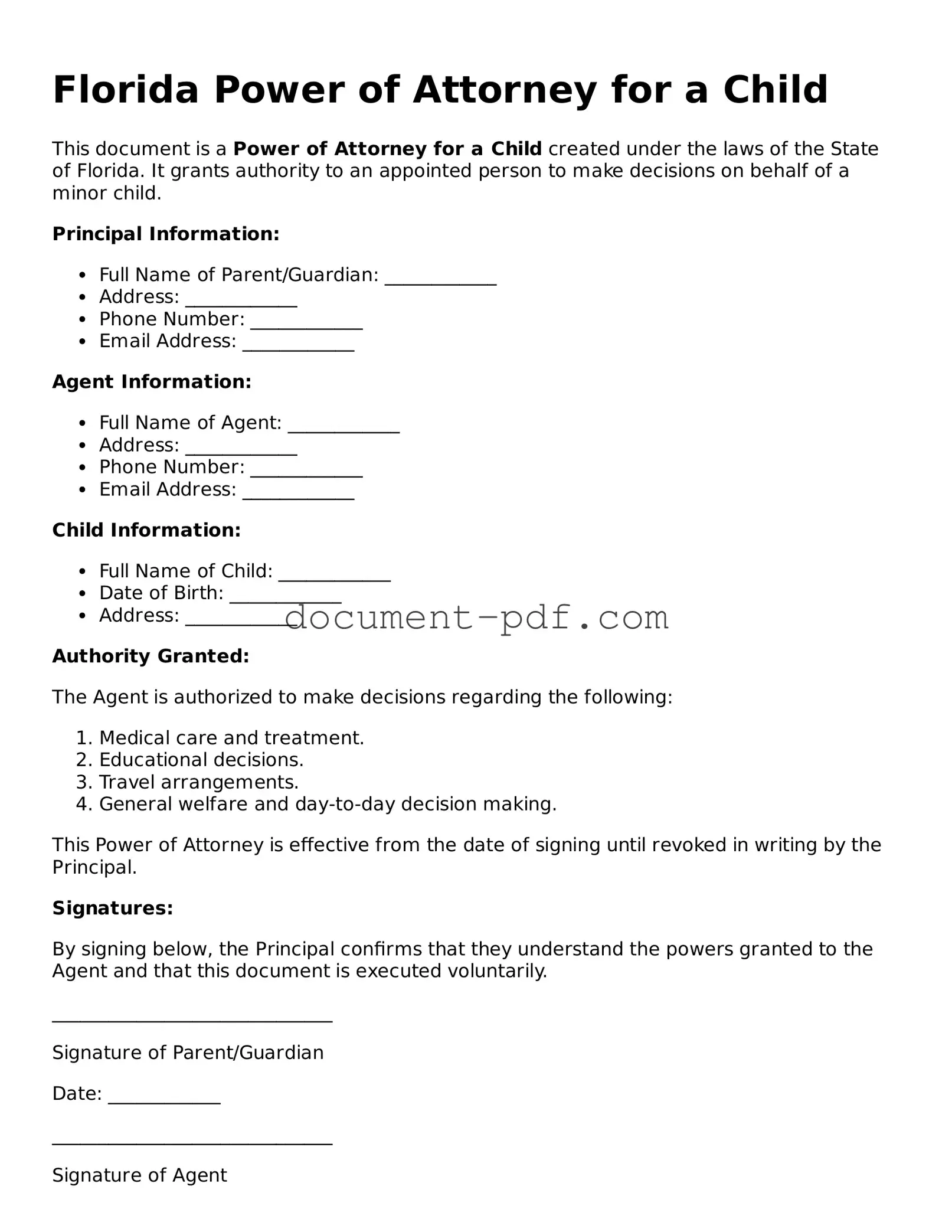The Florida Power of Attorney for a Child form is similar to a General Power of Attorney. Both documents allow one person to grant another individual the authority to act on their behalf. However, the General Power of Attorney is broader in scope, covering a wide range of financial and legal matters, while the Power of Attorney for a Child specifically focuses on decisions regarding a minor's care, education, and welfare. This specialized form is tailored to meet the needs of parents or guardians who may be temporarily unable to care for their child, providing a clear and limited authority to another trusted adult.
Another document that shares similarities is the Medical Power of Attorney. Like the Power of Attorney for a Child, this form enables someone to make healthcare decisions for another individual. In the case of a child, the designated adult can make medical decisions if the parent or guardian is unavailable. Both documents emphasize the importance of choosing a trustworthy person to act in the best interest of the child, ensuring that critical decisions can be made promptly when necessary.
The Child Custody Agreement is another related document. This agreement outlines the terms of custody arrangements between parents or guardians. While the Power of Attorney for a Child grants temporary authority to another adult, a Child Custody Agreement establishes the legal rights and responsibilities of parents regarding the child's upbringing. Both documents focus on the child's welfare, but they serve different purposes within the legal framework of family law.
Considering the legal implications of a thorough Last Will and Testament document is vital for individuals looking to secure their wishes regarding asset distribution and caregiving after death. This form plays a crucial role in ensuring that your desires are respected, preventing potential disputes among heirs and ensuring that your estate is handled according to your preferences.
A Temporary Guardianship form is also similar in function. This document allows a designated person to care for a child for a limited period, usually when parents are unable to do so due to emergencies or other circumstances. While the Power of Attorney for a Child grants specific powers related to the child's care, the Temporary Guardianship form generally provides broader authority for day-to-day decisions, including education and healthcare, during the specified time frame.
The Consent for Medical Treatment form is another document that aligns with the Power of Attorney for a Child. This form allows a parent or guardian to authorize medical treatment for their child by another adult. While the Power of Attorney for a Child provides a more comprehensive authority for various decisions, the Consent for Medical Treatment specifically focuses on healthcare, ensuring that a child can receive necessary medical care when the parent is not present.
Lastly, the Child Travel Consent form is relevant as well. This document permits a child to travel with another adult, often required by airlines or border authorities. Similar to the Power of Attorney for a Child, it ensures that the adult accompanying the child has the legal permission to take responsibility for the child's welfare during travel. Both documents prioritize the child's safety and well-being, particularly in situations where a parent cannot be present.

